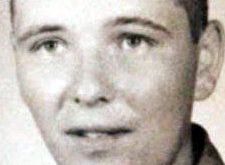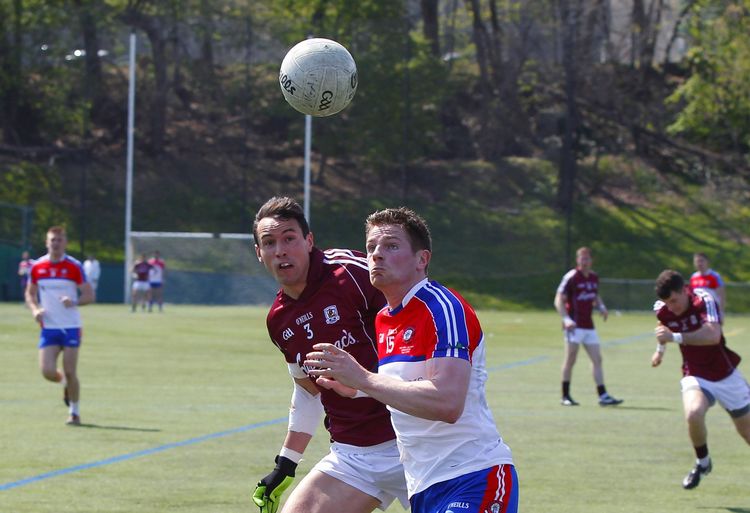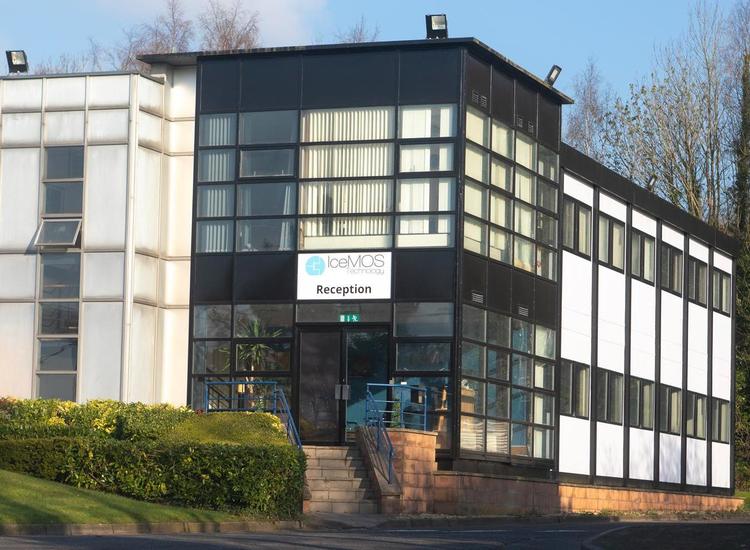The life of frequent Irish Echo contributor Patrick Fenton and his family was turned upside down by Hurricane Sandy on Oct. 29. In this essay in diary format, he recounts his experience in the weeks after Hurricane Sandy hit.
I live right next to a wide canal in Massapequa, Long Island. Just a few feet from it. On maps it’s called the Massapequa River. It makes a short turn around a wide bend and flows into the Great South Bay, which is just around the corner from me. I'm a long way from the Irish, working-class tenements of Windsor Terrace, Brooklyn where I grew up in the late 1940s and into the ‘50s.
The storm grabbed me by the neck and totally destroyed the first floor of the high ranch I own. Massive destruction everywhere. My daughter Kelly and my grandson Miguel live there. Five feet of water in the streets, cars floating everywhere with lights flashing, boats thrown around on lawns like kids’ toys. Everything is gone, and now the first floor has been stripped down to the bare studs by a contractor. Every stove, washer refrigerator, beds, boiler, furniture gone. It's all out on the front lawn now.
Over three feet of water came rushing in from both sides of the house, front and back and turned over the refrigerator and every piece of furniture. If we hadn't evacuated hastily the night before we could have died there. After a midnight check of the bulk head outside my door I saw the water starting to slowly pour over it. It gave me an awful feeling and I knew right away that we were in trouble.
I walked up the block to the corner and I watched the water coming up from the sewers and starting to come more and more down our block, Neptune Place. It was like an eerie scene from a movie. I got my wife and daughter, who were in their pajamas moving, and told them we have to leave tonight. Right now. Don't hesitate. I called the Best Western on Sunrise Highway. They had two rooms left for the night and they would hold them for us.
The neighborhood looks like a war zone at night now, convoys of Army helicopters flying low over the canal, darkness everywhere, a Military Police truck moving through the street. For 18 nights we were without gas, electricity, heat. We tried staying on the second floor for three nights, reading books by candle light, but it got so cold even with four blankets on, we had to leave again.
“John,” one of the neighbors who rode it out, and regretted it, says he saw a 40-foot boat come out of the Great South Bay and float down our street, and then when the tide finally started to release Sandy's grip on us, it simply swirled around and sailed back out to God knows where. All of these tough canal people who have lived next to the canals for generations and look out at storms with a glass of scotch in hand and a concerned stare before bedding down had their world changed forever this night. But they're strong people, and they see life through their own eyes.
“John, one of the neighbors who rode it out, and regretted it, says he saw a 40-foot boat come out of the Great South Bay and float down our street, and then when the tide finally started to release Sandy's grip on us, it simply swirled around and sailed back out to God knows where.”
As the water rose higher and higher in the street and started to flow in through his front door, John retreated to the highest floor in the house and watched as he saw a scene he had to hope he would never ever witness again in his lifetime. He watched from his window as two huge trees on the side of my house got felled and made an awful sound as they took up huge slabs of my concrete, leaving behind two 16-foot root balls and craters and crushed boats, and fences. He said they went down about midnight.
At the same time a full-size Boston Whaler was being tipped over and dumped off of the bulk head in front of my house, whole entire docks, two of them with three tied up ski jets on them were ripped away and pulled across the canal, boats and all. For days after the hurricane huge wooden docks would come floating down our canal.
Dropped into Vonnegut
I have been living in three different places since it hit. We made it out the first night to the Best Western on Sunrise Highway at about midnight. First night there a huge utility pole fell on the hotel and we were without lights, heat, hot showers again. They didn't have a generator. After two nights of this, we moved again.
I'm living in a basement in North Massapequa right now, and have been spending my days calling insurance adjusters, contractors, FEMA. I have flood insurance so after a long while I should be okay. I told my daughter that I will rebuild better than ever, and we will. And I'll figure that out. But it's going to take time.
We are all okay -- Kelly my daughter doing such great work getting us signed up for assistance, my wife the same, but we have seen a lot of things, disaster scenes, nobody should have to see or live through. I spent one cold afternoon in a disaster tent city set up by FEMA in Cedar Creek Park in next door Seaford to check on my application for FEMA assistance. Waiting on cold metal chairs with a group of other people for my name to be called. And wondering how I wound up here. It’s like someone picked me up from my normal world of writing and hanging out, and dropped me from the sky here into the gloomy world of a Kurt Vonnegut novel. "So it goes."
It was a huge, white circus-type tent with rows and rows of long, portable tables with phones on them hooked up to FEMA's computers, portable heaters blowing through the coldness of the tent. And outside rows and rows of mobile insurance trailers were lined up under the gray sky, Red Cross trucks giving hot meals and blankets to those who needed them. And off on a hill at the back of the park, shower trailers and trailers where you could do some laundry. The misery and loneliness on the faces of the people coming in and out of that tent is something I will never forget. It humbles you.
But my creative strength is coming back, and that's a good thing. So is my sense of humor. Every now an then when my daughter Kelly accomplishes something new for us with FEMA or some other disaster agency and we are settled down by candle light for the night with a glass of wine, I turn to her and say, "you're doing a heck of a job, Brownie." I say the same thing to my wife Patricia and we all smile.
I walked down my block the other day in late evening, and I took a few pictures of refrigerators and personal belongings spray painted with messages for FEMA. Maybe for a story when I get my feet back on the ground, I thought. And then I thought, it's coming back, the need and urge to write, to be creative. To record. And it made me feel good inside.
In the beginning, Kelly said to me, "I know you will write about this, Dad. I know it." Not now I won't, I told her. I just can't think about writing now. It hurts too much.
Continues on page 17
Continued from page 16
At first strange, scary stories of destruction were coming in, rumors then. But most of them turned out to be true or very close to it. One night I walked out in the darkness to stand on the balcony of the hotel and drink a can of Budweiser, and a tall, blond woman in her 50s was standing there smoking a cigarette and staring out at the pitch black night. She lived in the next shore town over from mine she said, Seaford, a mostly working-class hamlet where Irish families have lived in the same small capes next to the canals for generations. Many of their houses were converted summer bungalows. On weekends and special family events like Holy Communions and Catholic Confirmations they celebrate in the White Whale Restaurant on the side of one of the canals. And I wonder if it's still there now.
What do you here? I asked her. She had a cell phone that was actually working. Ours wasn't, and the hotel phones were all dead. "I heard that the height of the water in the streets is now over five feet, and it's rising. It's going to go over six feet. It is. There are no more boats in Seaford," she said. "They're all gone now and nobody knows where they went, probably out to the Great South Bay." True or partly true, her last statement sounding so sure, put a cold chill in me, a profound sadness.
Stories coming in
I can't ever bear to listen to the stories or see the pictures of what happened to the Rockaways, to Long Beach, to Staten Island, to Gerritson Beach in Brooklyn . And the total destruction of Breezy Point, left to look like Dresden now after the war. And all that beauty gone now, the beauty of the two-mile boardwalk of Jones Beach, and Long Beach, ripped up and looking like a roller coaster now. And memories come rushing back of drinking summer beers on the Rockaway Boardwalk when I was young and slow dancing with Irish nurses in Fitzgerald's bar on 108th Street to Tommy Edward's "It's All in the Game,” so safe then in their arms.
“We were first generation Irish stock whose roots started in places like the city of Galway where my father was born in an attached house on the Long Walk, a fishing village, and my grandmother was a fisher woman. Tough Irish who lived off the sea.”
And the White House bar drinking with Jacky Malone from Windsor Terrace, and the Irish Circle. It seemed like we were always laughing then, so young, so hopeful of our futures. And why wouldn't we be? We were educated in Windsor Terrace's Holy Name parochial school, and we were educated on the streets of 17th Street and 9th Avenue.
And we were first generation Irish stock whose roots started in places like the city of Galway where my father was born in an attached house on the Long Walk, a fishing village, and my grandmother was a fisher woman. Tough Irish who lived off the sea. Some, like my grandfather, died from it. They even had their own "Fisher King" who watched the markets each morning where the woman sold fish. And my mother lived in a thatched cottage with a house full of kids on a pig farm in nearby Willamstown, a small farming village that didn't get electricity until the mid 1950s when she was long gone to America's Brooklyn.
Stories coming in from as far away as Spring Lake, New Jersey, now, another "Irish Riviera." They're from my first cousin Jo Ann McGuirk and her husband Eddy. “The board walk is all gone now," she says. It's a huge pile, a mountain of summer memories and loss, pushed together next to the Jersey Shore by pay loaders. Yesterday as I was driving alone down Merrick Road the Billy Joel song came on with the lyrics, "Seen the lights go out on Broadway, I saw the Empire State laid low..", and I had to bite hard on my lip not to cry.
After it all happened, one of my first thoughts was, I want to be in a safe place again. I thought about how great it would be to stand in Farrell's Bar on 16th Street in the old neighborhood, beer in hand, talking to Jacky Malone, a retired cop that I grew up with on 17th Street. He never left the neighborhood. And some afternoons you'll find him still standing down next to the side entrance of the bar where we drank together so long ago when we were young. And as soon as I get my feet back on the ground, I'm going to rush right back there and do that. It's always home there for me, always home.








